I am trying to get the values from column 18, Test to uppercase after the upload of the excel file but without any succes.

How exactly can I reach the values that are in a DataTable?
This is where I fill the DataTable with the values from the excel file:
using (OleDbDataAdapter adapter = new OleDbDataAdapter(command))
{
DataTable dataTable = new DataTable();
adapter.Fill(dataTable);
return dataTable;
}
I would like to have all the values in 18 to be uppercase.